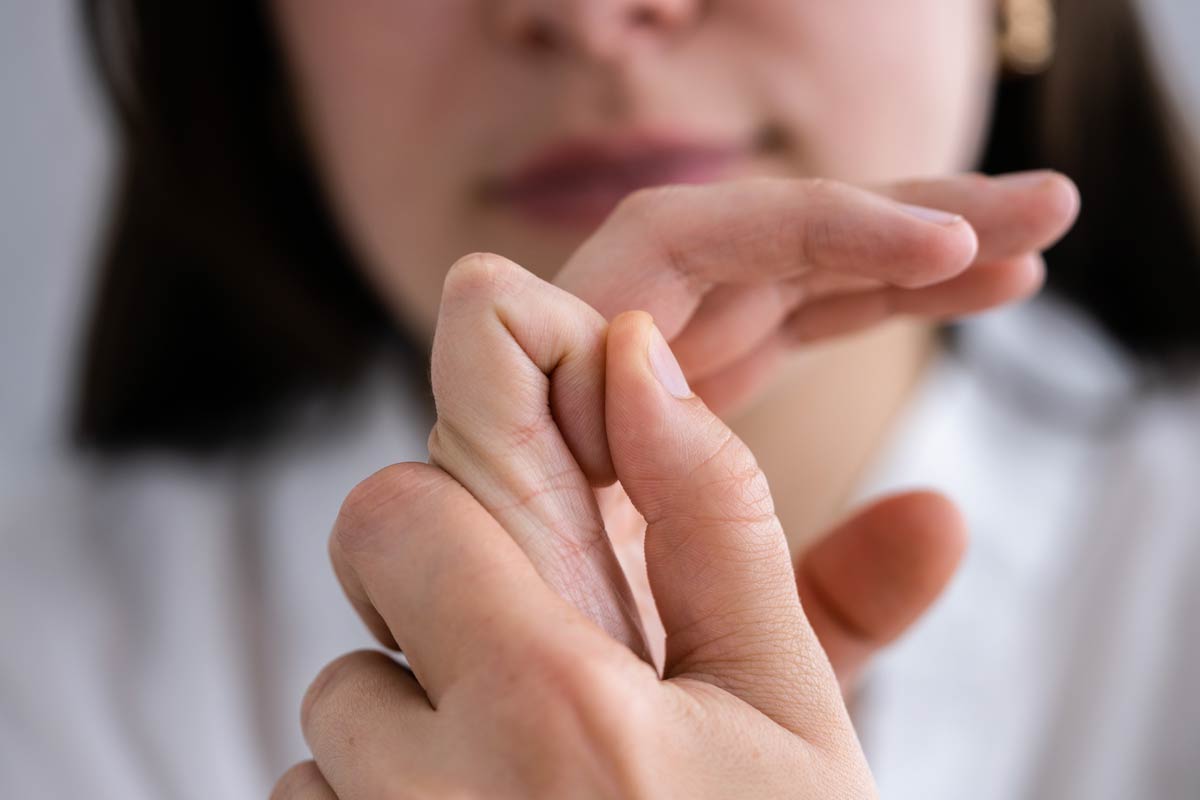
What is Excoriation Disorder?
Excoriation Disorder, also known as skin-picking disorder or dermatillomania, is a mental health condition characterized by recurrent skin picking leading to skin lesions.
The disorder is often associated with significant distress or impairment in social, occupational, or other important areas of functioning.
It’s not uncommon for individuals with this disorder to spend significant amounts of time picking at their skin to the extent that it interferes with their daily life.
The behaviour of individuals with Excoriation Disorder may include:
Skin picking:
This can involve picking, scratching, prying, or digging into the skin. It often occurs in an attempt to remove minor irregularities or perceived imperfections on the skin.
Repeated attempts to stop the behaviour:
Despite the negative consequences, individuals with this disorder often find it difficult to stop the behaviour.
Significant distress or impairment:
This can include interference with social and occupational activities and physical harm leading to infections or scarring.
In some cases, individuals may also experience feelings of gratification or relief when picking at the skin, but this is often followed by guilt or embarrassment.
What causes Excoriation Disorder?
The exact cause of Excoriation Disorder is not known. However, genetic, environmental, and psychological factors are believed to influence it.
It is often associated with other mental health disorders such as obsessive-compulsive disorder (OCD), body dysmorphic disorder (BDD), and trichotillomania (hair-pulling disorder).
Some individuals may start skin picking in response to stress, anxiety, or even boredom.
Certain skin conditions, such as acne or eczema, may also trigger it.
How long do Excoriation Disorder episodes last?
The duration of Excoriation Disorder episodes can vary greatly from person to person. Some individuals may engage in skin picking behavior several times a day, which may be concentrated into periods of a few minutes to several hours.
Can therapy treat Excoriation Disorder?
Cognitive-behavioural therapy (CBT) is effective in treating Excoriation Disorder. It involves helping the individual understand the triggers and develop healthier coping mechanisms.
This therapy may include habit reversal training, where the individual learns to recognize the urge to pick and then substitute a different behaviour, such as clenching their fists or playing with a stress ball.
Other techniques, such as mindfulness, relaxation training, and acceptance and commitment therapy (ACT), can also be useful. A tailored treatment plan can offer the best chance for individuals to gain control over this behaviour and improve their quality of life.
Remember, it’s okay to seek help. You deserve to feel your best and live a life free from the distress caused by Excoriation Disorder.